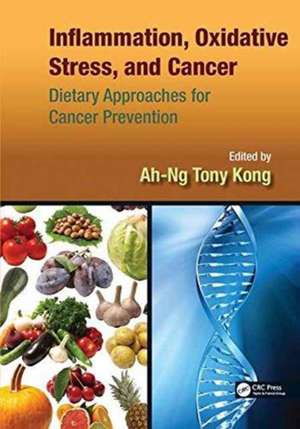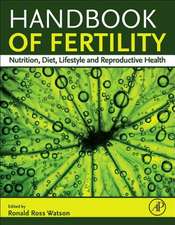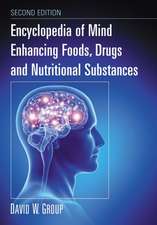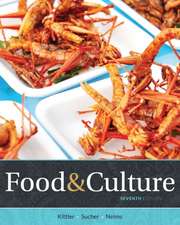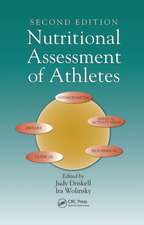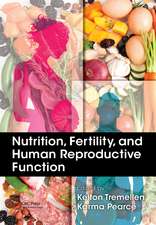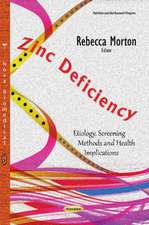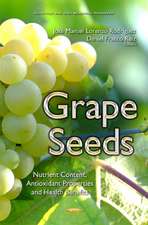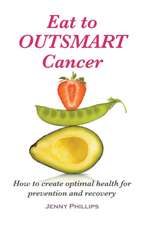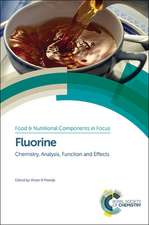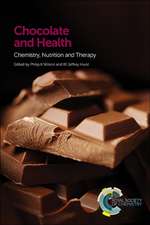Inflammation, Oxidative Stress, and Cancer: Dietary Approaches for Cancer Prevention
Editat de Ah-Ng Tony Kongen Limba Engleză Paperback – 16 noi 2016
Divided into nine sections, the book begins with the basic mechanisms of inflammation/oxidative stress-driven cancer, including an overview of the topic and how to prevent carcinogenesis, the role of obesity in inflammation and cancer, and antioxidant properties of some common dietary phytochemicals. Subsequent sections cover cellular signal transduction, molecular targets, and biomarkers of dietary cancer-preventive phytochemicals, as well as their potential challenges with in vivo absorption and pharmacokinetics.
The chapters also examine the cancer-preventive properties of various classes of phytochemicals, including vitamins A, D, and E; omega-3 and omega-6 fatty acids; flavanoids and polyphenols; garlic organosulfur compounds and cruciferous glucosinolates; and selenium, traditional Chinese herbal medicines, and alpha lipoic acid. The final section of the book explores the latest developments on the interactions of dietary phytochemicals through epigenetics and the management of chronic inflammation with nutritional phytochemicals.
| Toate formatele și edițiile | Preț | Express |
|---|---|---|
| Paperback (1) | 613.49 lei 6-8 săpt. | |
| CRC Press – 16 noi 2016 | 613.49 lei 6-8 săpt. | |
| Hardback (1) | 1301.74 lei 6-8 săpt. | |
| CRC Press – 7 aug 2013 | 1301.74 lei 6-8 săpt. |
Preț: 613.49 lei
Preț vechi: 721.76 lei
-15% Nou
Puncte Express: 920
Preț estimativ în valută:
117.39€ • 122.33$ • 97.20£
117.39€ • 122.33$ • 97.20£
Carte tipărită la comandă
Livrare economică 03-17 aprilie
Preluare comenzi: 021 569.72.76
Specificații
ISBN-13: 9781138199842
ISBN-10: 1138199842
Pagini: 640
Ilustrații: 52
Dimensiuni: 178 x 254 x 39 mm
Greutate: 0.45 kg
Ediția:1
Editura: CRC Press
Colecția CRC Press
ISBN-10: 1138199842
Pagini: 640
Ilustrații: 52
Dimensiuni: 178 x 254 x 39 mm
Greutate: 0.45 kg
Ediția:1
Editura: CRC Press
Colecția CRC Press
Public țintă
Professional ReferenceCuprins
Section I: Inflammation, Oxidative Stress, Nutritional Phytochemicals, and Cancer. Section II: Signal Transduction, Molecular Targets, and Biomarkers of Dietary Cancer-Preventive Phytochemicals. Section III: In Vivo Absorption and Pharmacokinetics of Nutritional Phytochemicals. Section IV: Vitamins A, D, and E Cancer Prevention, and Clinical Perspective. Section V: Omega-3 and Omega-6 Fatty Acids. Section VI: Flavonoids and Polyphenols. Section VII: Garlic Organosulfur Compounds and Crucifer Glucusinolates. Section VIII: Selenium, Herbal Medicines, Alpha Lipoic Acid, and Cancer Prevention. Section IX: Epigenetics and Chronic Inflammation. Index.
Notă biografică
Ah-Ng "Tony" Kong, Ph.D., is a distinguished professor (PII), Glaxo Endowed Chair Professor of Pharmaceutics, and director of the Graduate Program in Pharmaceutical Sciences at Rutgers, the State University of New Jersey. He is also the director for the Center for Pharmacogenetics and Pharmacogenomics at Rutgers University. Dr. Kong has published more than 200 original research papers, review articles, and book chapters. He has chaired and given presentations in many national and international symposia and conferences and is currently serving on the board of 15 international journals. His research areas are in dietary phytochemicals (signaling and gene expression, nutrigenomics, cancer chemoprevention); animal tumor models of the prostate, colon, and skin; epigenetics/epigenomics; oxidative/redox/inflammatory stress response; Nrf2-mediated nuclear transactivation and signaling; and pharmacokinetics and pharmacodynamics of phytochemicals.
Descriere
Increasing scientific evidence suggests that most diseases including cancer are driven by oxidative stress and inflammation, attributed to environmental factors such as diet. This book examines the latest developments on the cancer-preventive effects of various dietary phytochemicals working through anti-oxidative and anti-inflammatory response-related mechanisms. The book is divided into sections covering inflammation, oxidative stress, phytochemicals, and cancer; signal transduction, molecular targets, and biomarkers; and various classes of phytochemicals, including vitamins, garlic compounds, and other dietary phytochemicals and herbal medicines.
